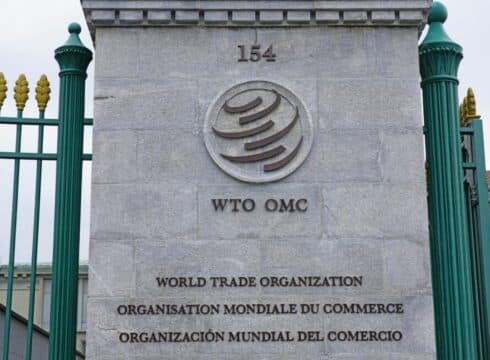WTO believes that such initiatives can help in economic recovery and job creation
Global nature of Covid-19 would encourage international cooperation in areas like ecommerce, says WTO
Covid-19 has amplified the challenges faced by ecommerce like high rates, product safety and more
Inc42 Daily Brief
Stay Ahead With Daily News & Analysis on India’s Tech & Startup Economy
As global trade has come to a near standstill with Covid-19 pandemic, the World Trade Organisation (WTO) is considering to roll out new and practical ecommerce solutions to allow fast and secure cross-border movement of goods and services. It believes that such initiatives will help in economic recovery and job creation in developing markets such as India, Africa, Southeast Asia and others.
The trade organisation has elaborated in its report that ecommerce solutions can offer assistance to developing countries and least developed countries (LDC) to reduce the digital divide, help micro, small and medium enterprises (MSME) and promote economies that are more resilient to the crisis in the future.
“The global nature of COVID-19 and its impact on ecommerce may encourage strengthened international cooperation and the further development of policies for online purchases and supply. The pandemic has made it clear that ecommerce can be an important tool/solution for consumers. Ecommerce can also support small businesses and, by making economies more competitive, be an economic driver for both domestic growth and international trade.”
It argued that the experiences and lessons emerging from the Covid-19 crisis could be a further incentive for global cooperation in the area of ecommerce, which could help to facilitate cross-border movement of goods and services, narrow the digital divide, and level the playing field for small businesses.
“The pandemic has highlighted the glaring need to bridge the digital divide, both within and across countries, given the central role the digital economy has played during the crisis,” it said.
In the report, WTO added that ecommerce of goods and services has been adversely impacted causing delivery delays or outright cancellation of orders. The disruption in the supply and demand overall has been one of the biggest factors behind it.
“Governments have adopted new measures, and the private sector has also acted, to respond to and ensure that e-commerce can help to alleviate some of the challenges faced in combatting the virus. These have included increasing network capacity, offering expanded data services at little or no cost, lowering or scrapping transaction costs on digital payments and mobile money transfers, improving delivery services and other logistics, using digital tools to enforce measures and disseminate information, promoting telehealth services and leveraging ICT for surveillance.”
It added that the pandemic has also amplified several other ecommerce-related challenges such as increasing prices to unreasonably high levels, product safety concerns, deceptive practices, and cybersecurity concerns.
However, at the same time, it “has resulted in spikes in business-to-consumer (B2C) sales and an increase in business-to-business (B2B) ecommerce. The increase in B2C sales is particularly evident in online sales of medical supplies, household essentials, and food products.”
{{#name}}{{name}}{{/name}}{{^name}}-{{/name}}
{{#description}}{{description}}...{{/description}}{{^description}}-{{/description}}
Note: We at Inc42 take our ethics very seriously. More information about it can be found here.


